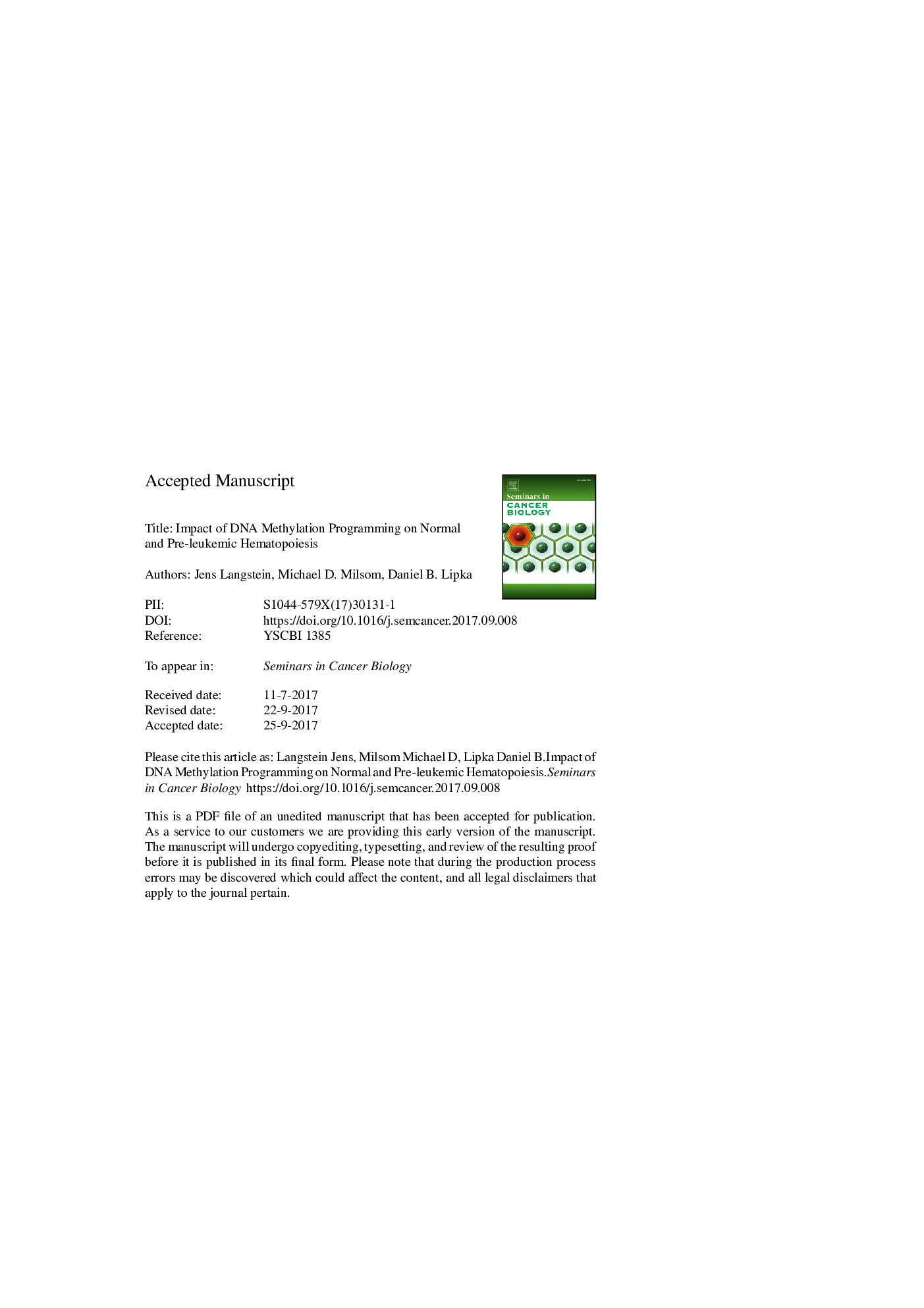| Article ID | Journal | Published Year | Pages | File Type |
|---|---|---|---|---|
| 8361736 | Seminars in Cancer Biology | 2018 | 33 Pages |
Abstract
Epigenome regulation is a critical mechanism that governs cell identity, lineage specification and developmental cell fates. With the advent of low-input and single-cell technologies as well as sophisticated cell labeling techniques, our understanding of transcriptional and epigenetic regulation of hematopoiesis is currently undergoing dramatic changes. Increasingly, evidence suggests that the epigenome conformation acts as a critical decision-making mechanism that instructs self-renewal, differentiation and developmental fates of hematopoietic progenitor cells. When dysregulated, this leads to the evolution of disease states such as leukemia. Indeed, aberrations in DNA methylation, histone modifications and genome architecture are characteristic features of many hematopoietic neoplasms in which epigenetic enzymes are frequently mutated. Sequencing studies and characterization of the epigenetic landscape in lymphomas, leukemias and in aged healthy individuals with clonal hematopoiesis have been indispensible to identify epigenetic regulators that play a role in transformation or pre-disposition to hematopoietic malignancies. In this review, we outline the current view of the hematopoietic system and the epigenetic mechanisms regulating hematopoiesis under homeostatic conditions, with a particular focus on the role of DNA methylation in this process. We will also summarize the current knowledge on the mechanisms underlying dysregulated DNA methylation in hematologic malignancies and how this contributes to our understanding of the physiological functions of epigenetic regulators in hematopoiesis.
Related Topics
Life Sciences
Biochemistry, Genetics and Molecular Biology
Biochemistry
Authors
Jens Langstein, Michael D. Milsom, Daniel B. Lipka,
